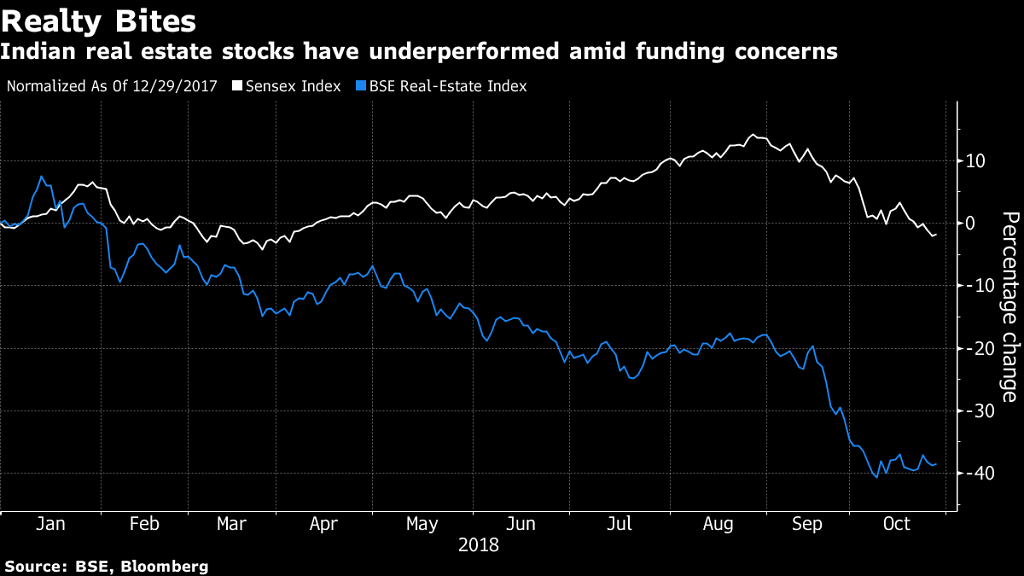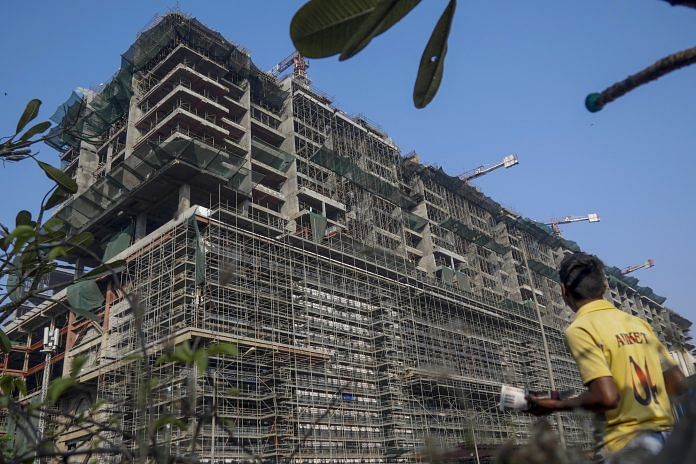This could derail a nascent recovery in the property sector.
India’s banking liquidity crunch is extending to the nation’s developers, threatening to derail a nascent recovery in the property sector.
Home builders in India have increasingly been turning to non-bank lenders for funding as traditional financiers struggle under bad loans. But following the government’s seizure of troubled shadow bank Infrastructure Leasing & Financial Services Ltd. earlier this month, that avenue may be choked off too.
With non-banking financial companies themselves struggling, “their disbursal of loans to developers has slowed significantly,” said Anuj Puri, the chairman of Anarock Property Consultants Pvt. This has “hijacked Indian real estate’s growth story over the short to mid-term.”

Things had been looking up for real estate in India with apartment sales increasing 8 percent in the nine months through September and new project launches up 18 percent from a year ago, according to Anarock. That’s after a sustained period of uncertainty caused by 2016’s demonetization and the roll-out of a nationwide sales tax.
Companies with delayed projects or those currently under construction are at the biggest risk of defaulting on their debt obligations, JM Financial Ltd. analyst Abhishek Anand wrote in a note earlier this month. From fiscal 2014 through 2018, non-bank lending to real estate companies expanded at a compound annual growth rate of 45 percent versus 4.7 percent for bank advances, data from JM Financial show.
Some 4.64 trillion rupees ($63 billion) of residential projects are in limbo, according to Anarock, and Jaypee Infratech Ltd. and Unitech Ltd. are among developers that have been taken to court by irate homeowners.
Under-construction properties could see a price correction of 5 percent to 10 percent, according to Samir Jasuja, the CEO of consultancy PropEquity. Small- to mid-sized developers are more likely to be impacted by lending restrictions, he said.
Larger players could find M&A opportunities. Oberoi Realty Ltd. said last week it may be able to buy land parcels at a reasonable price now that “fly-by-night” developers are out of the market. – Bloomberg



